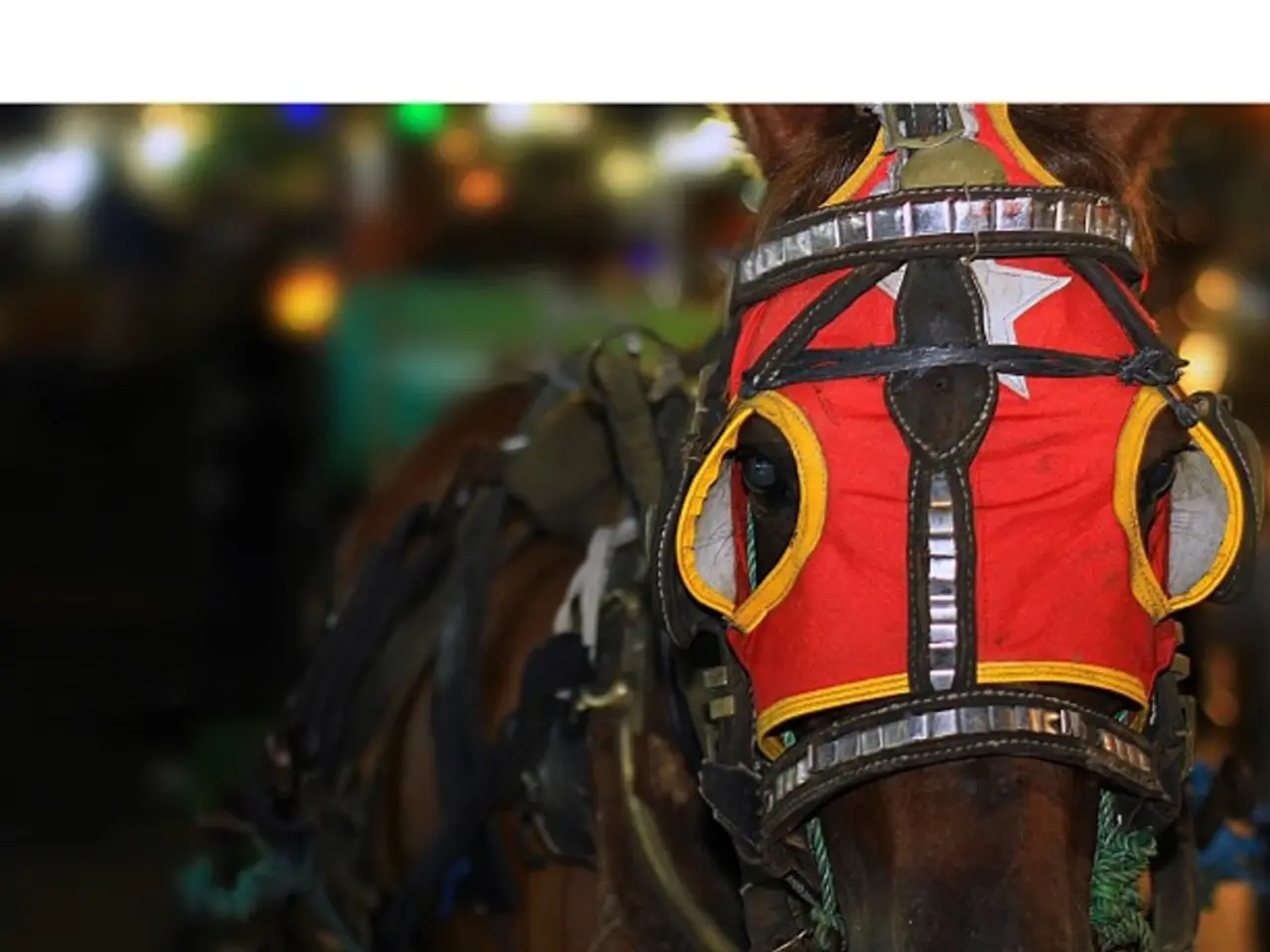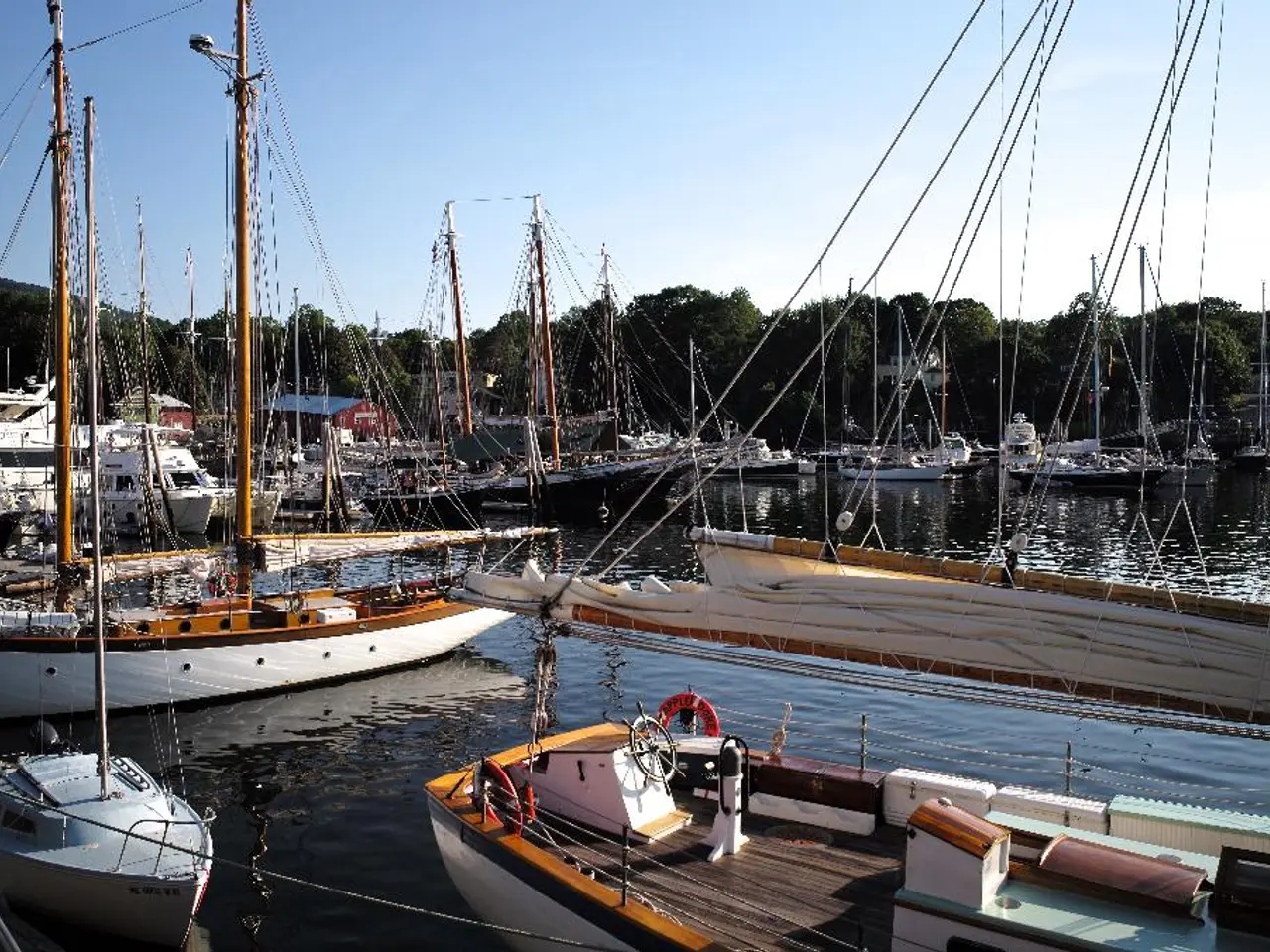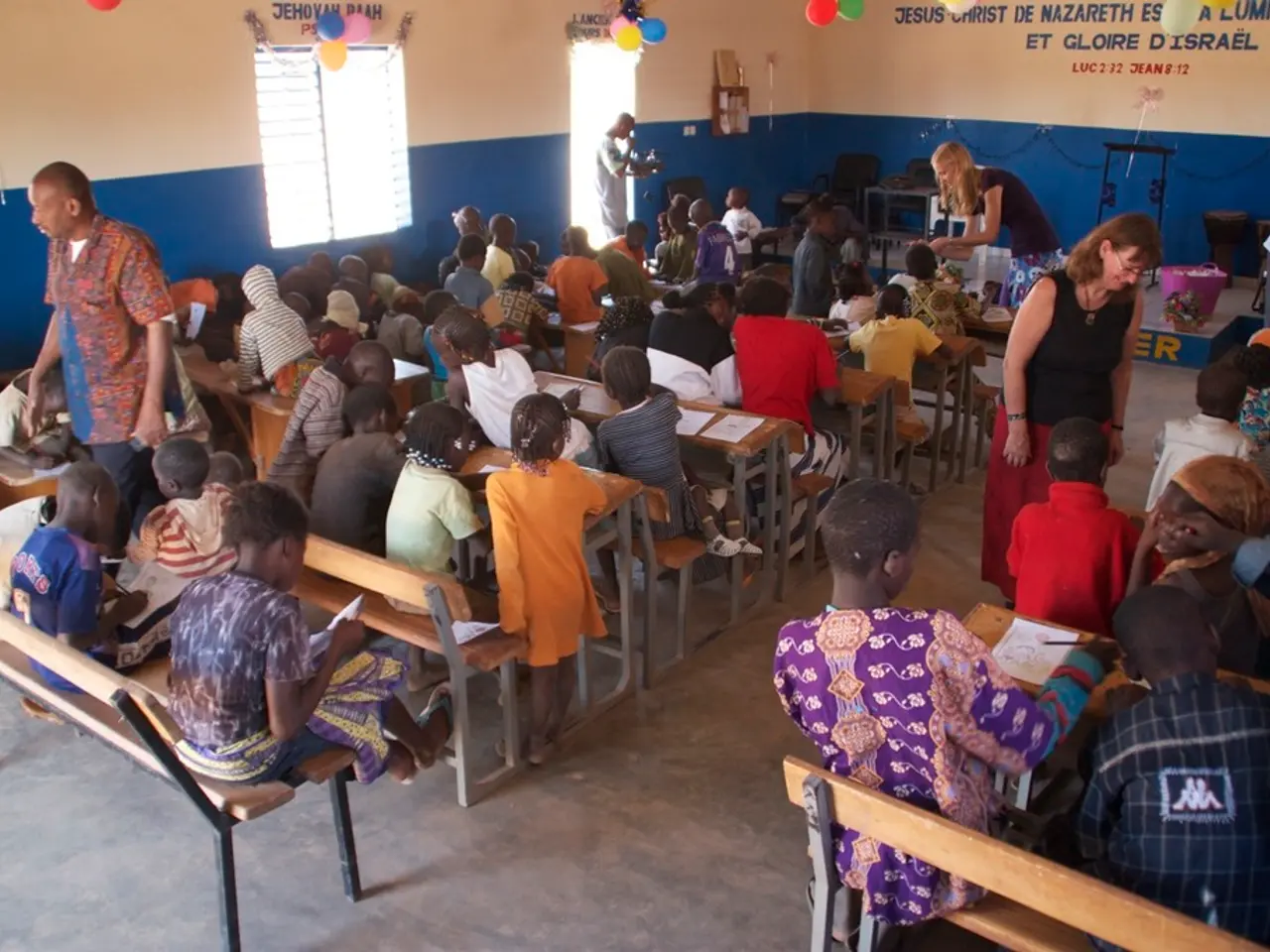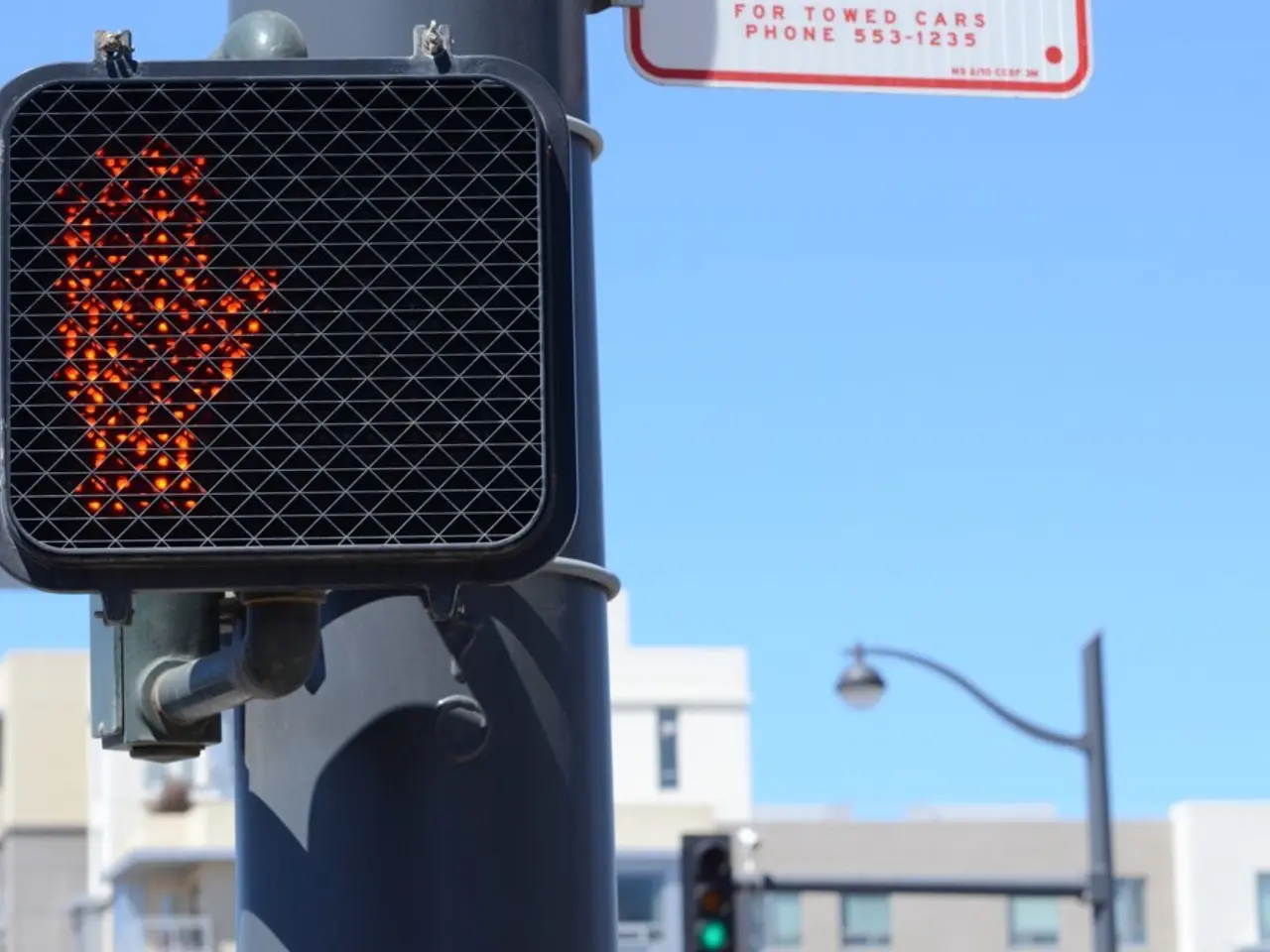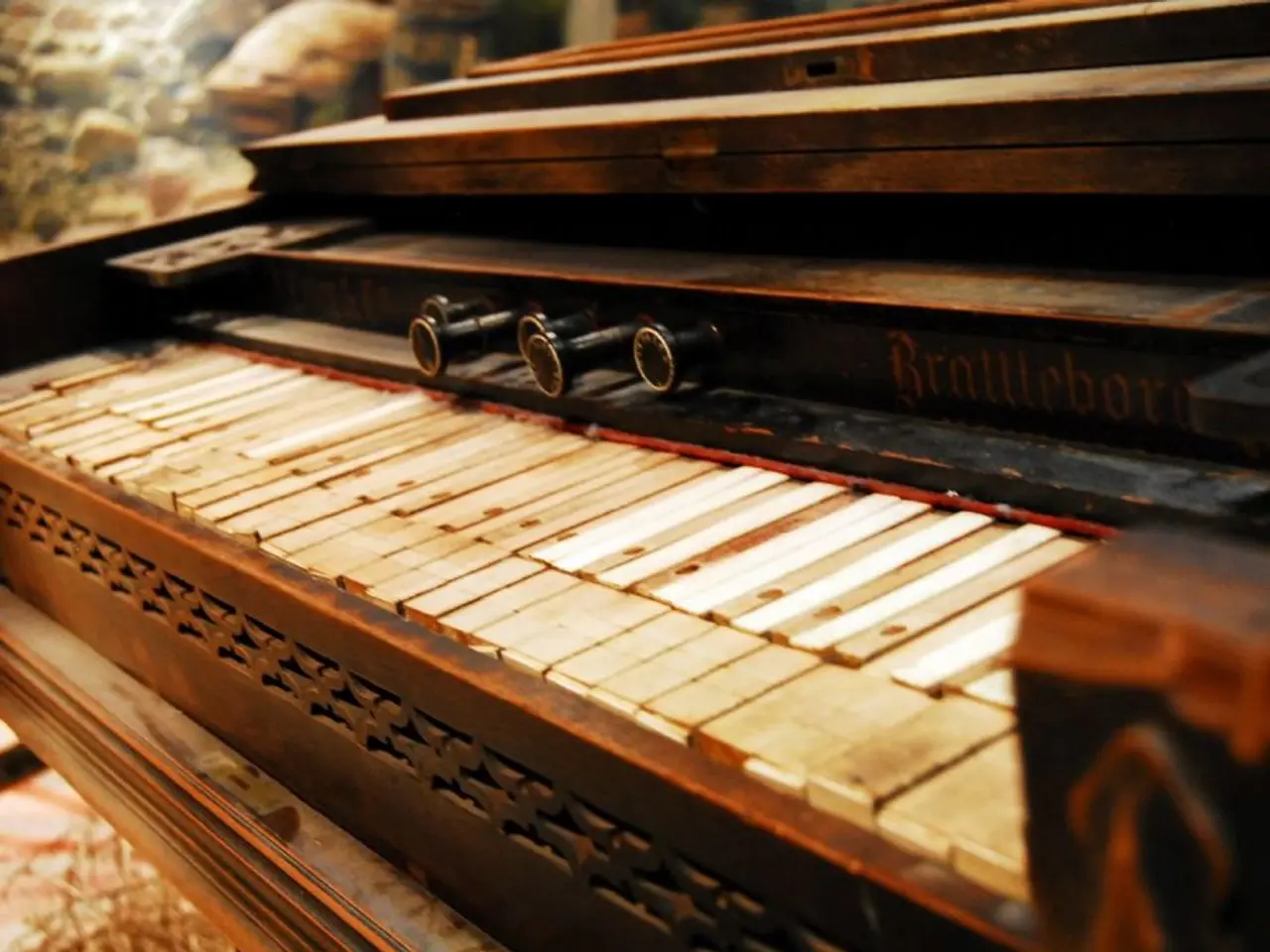Controversy surrounds an old manor, once a national property
In the heart of Bremen, Germany, a proposed transitional home for refugees on the Landhaus site has sparked debate between the city's political parties, the Christian Democratic Union (CDU) and the Social Democratic Party (SPD).
The SPD, known for their humanitarian approach, generally supports the establishment of the transitional home. They emphasise the importance of providing adequate and humane accommodation for refugees, often advocating for solutions that ensure social integration and support services. The SPD prioritises Bremen's responsibility to accommodate refugees and promote a humane response to the ongoing crisis.
On the other hand, the CDU in Bremen has expressed reservations or opposition towards the proposed transitional home at the Landhaus site. Their concerns typically focus on local issues such as the impact on the neighbourhood, infrastructure strain, and security measures. The CDU calls for a thorough evaluation of alternative sites and more community involvement in the decision-making process.
Jannis Fricke, a member of the advisory board fraction, and Oguzhan Yazici, the urban policy spokesman for the CDU, have voiced their concerns about the project at the municipal level. They argue that the project contradicts local conditions and is legally questionable. The Borgfelder CDU, in particular, is concerned about urban planning issues, the problematic parking situation, and procedural questions.
Christian Boiselle, chairman of the SPD local association, does not expect the discussion to be about the architectural aspect but about the planned use as a transitional home for refugees. He states that the SPD is not aware of any real legal defects in the project.
The investor, Theo Buhrmann, plans to build the transitional home on the site, which has been vacant for two years. Despite the CDU's reservations, the construction work was scheduled to begin. However, the renewed political discussion in the Bremen Citizens' Assembly could potentially delay the start of construction.
The SPD, while open to both the construction and its use as a transitional home for refugees, has not explicitly stated their position on the Landhaus site. They are puzzled by the negative attitude of the CDU towards the new construction project. The SPD local association Borgfeld-Lehesterdeich is surprised by the CDU's initiative to reopen the discussion on the Borgfelder Landhaus.
Boiselle appeals to all actors to handle the issue responsibly, emphasising the need for support and integration for those affected. He believes that a renewed discussion in the Bremen Citizens' Assembly would question legal decisions and delay necessary support for refugees. The CDU parliamentary group plans to reopen the discussion on the new building after the parliamentary summer break.
In summary, while the SPD supports the project as a means of responsibly managing refugee housing, the CDU is more cautious, seeking to address local concerns before agreeing to the proposal. The ongoing debate underscores the complexities of providing adequate housing for refugees while balancing community needs and concerns.
The CDU, in their cautious approach, questions the proposal for the transitional home for refugees at the Landhaus site due to concerns over local issues, legal issues, and urban planning matters.
While the SPD generally supports the establishment of the transitional home, they find it puzzling that the CDU has reopened the discussion on the Borgfelder Landhaus, potentially delaying necessary support for refugees.
